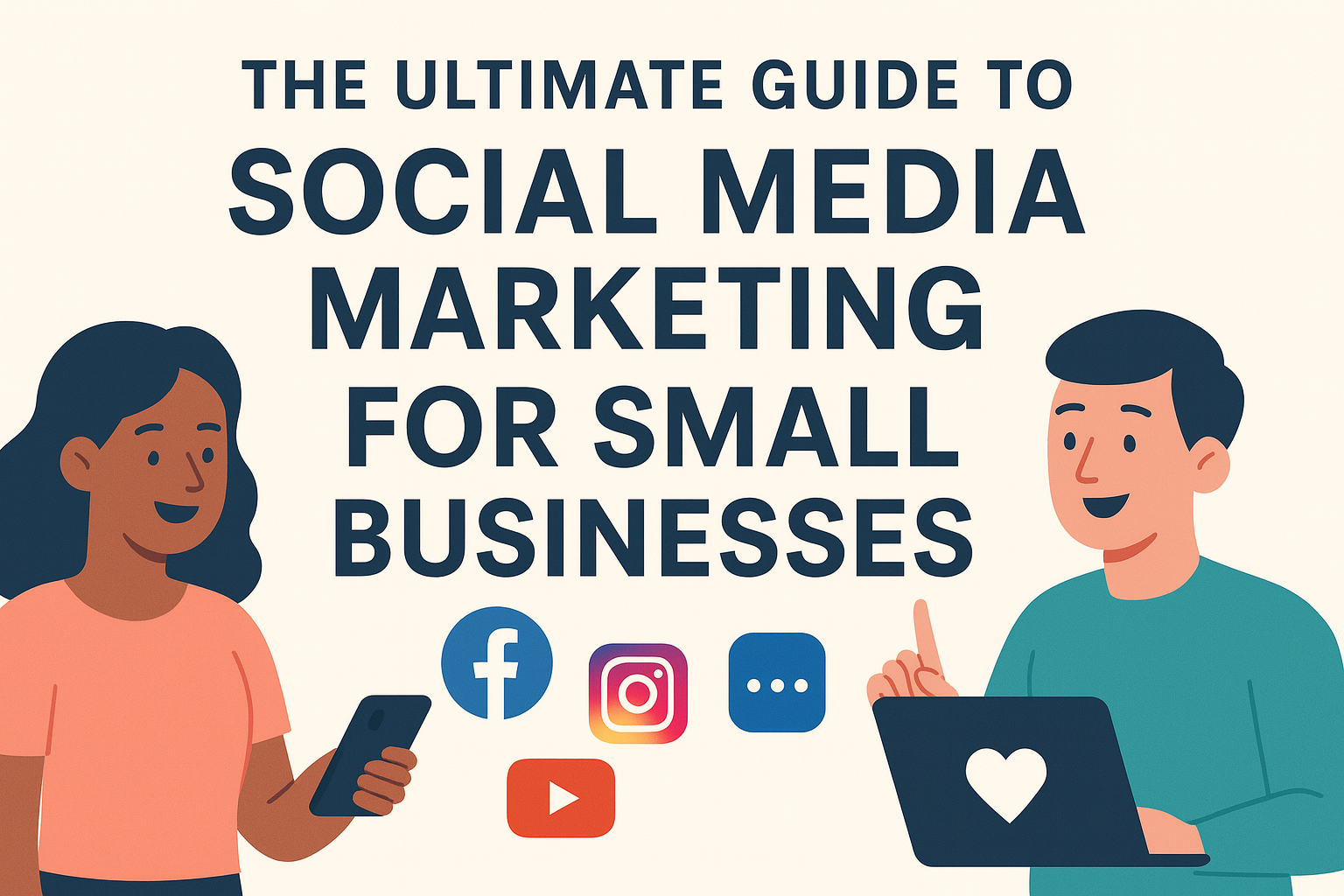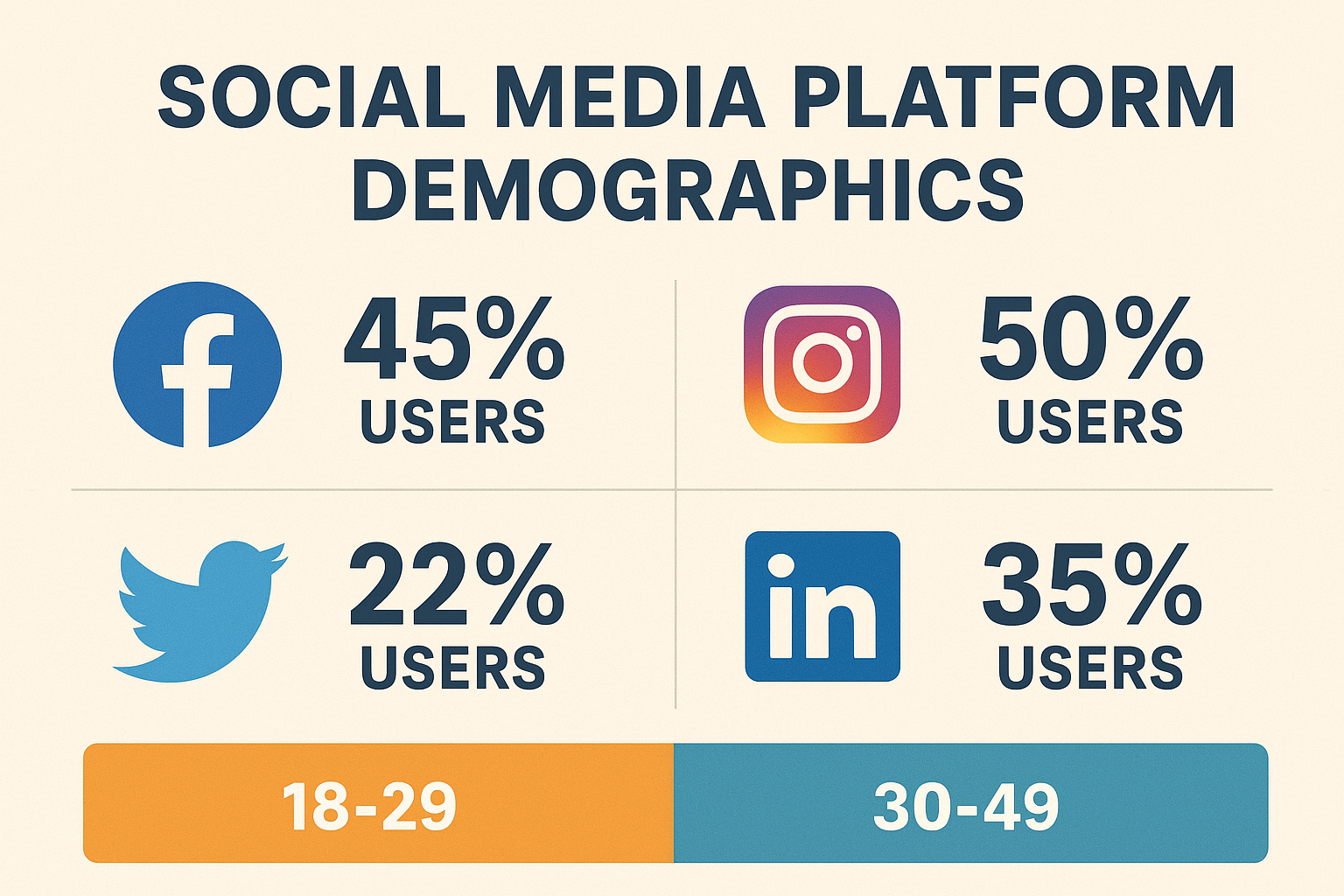The Ultimate Guide to Social Media Marketing for Small Businesses
Social media is no longer optional — it’s a powerful tool for small businesses to connect with customers, grow their brand, and drive sales. But with multiple platforms, trends, and algorithms, social media marketing can feel overwhelming.
In this guide, you’ll learn step-by-step strategies to effectively market your business online, save time, and get measurable results.
1. Understand Your Audience
Before posting content, know who you’re trying to reach:
Define your ideal customer.
Identify their pain points.
Find the platforms they use most.
Tools: Facebook Audience Insights, Instagram Analytics, Google Analytics.
Pro Tip: Create buyer personas to guide content and messaging. The more specific you can get with your persona, you will be able to visualize your target audience.
2. Choose the Right Platforms
Focus on platforms where your audience is most active:
Facebook & Instagram: Great for B2C and storytelling.
LinkedIn: B2B, networking, thought leadership.
TikTok & YouTube: Short-form video content for brand visibility.
Twitter/X: Real-time engagement and updates.
Pro Tip: Dominate 1–2 platforms rather than spreading thin. The type of business you have will not appeal on every platform. Seekers Digital is currently on Facebook, Instagram and LinkedIn.
3. Develop a Content Strategy
Focus on three types of content:
Educational: Tips, how-tos, guides.
Entertaining: Behind-the-scenes, fun posts.
Promotional: Products, events, testimonials.
Content Planning Tools: Buffer, Hootsuite, Later.
Pro Tip: Use a content calendar to stay consistent. I know this can be tricky if you are a solopreneur, but at least once a month is achievable.
4. Engage Your Audience
Engagement is crucial for growth:
Respond to comments and messages promptly.
Encourage user-generated content.
Ask questions, use polls to increase interaction.
Pro Tip: Engagement helps social algorithms show your posts to more people.
5. Leverage Paid Advertising
Organic reach is limited. Small businesses can benefit from targeted paid ads:
Facebook & Instagram Ads: Reach ideal audiences.
LinkedIn Ads: B2B leads.
Retargeting Ads: Reconnect with website visitors.
Pro Tip: Start small, test creatives, optimize campaigns.
6. Measure and Optimize
Track performance regularly:
Metrics: reach, impressions, engagement, clicks, conversions.
Tools: Google Analytics, platform insights.
Optimize: Double down on high-performing content, adjust what underperforms.
Pro Tip: Review metrics monthly to spot trends.
7. Stay Updated on Trends
Social media evolves constantly:
Short-form video content is booming.
AI tools can help generate content ideas.
Early adoption of new features often increases reach.
Pro Tip: Follow industry blogs to keep your strategy fresh.
Social media marketing doesn’t have to be overwhelming. By knowing your audience, focusing on the right platforms, creating valuable content, engaging followers, leveraging ads, and tracking results, small businesses can build strong brands, connect with customers, and increase sales.
Start small, stay consistent, and prioritize authenticity — your audience will notice.





